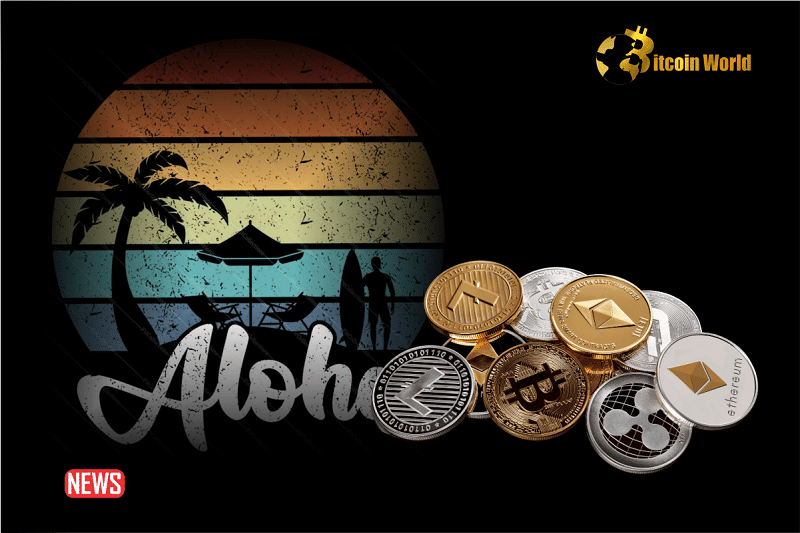Aloha Hawaii Becomes Crypto-friendly, Drops Crypto Licensing Plans, Leaving Industry Unregulated
0
0

- Aloha, Hawaii has dropped all crypto licensing pilots, leaving the crypto industry unregulated.
The Aloha State had consistently earned a nearly worst-in-the-nation reputation for its unfriendliness toward digital currencies—second only to New York, a state with a Bitlicense that Hawaii was attempting to adapt and adopt.
But in a news release quietly posted by the governor’s office last week, the state administration revealed that “digital currency companies will no longer require a Hawaii-issued money transmitter license to conduct business within the state.”
“The companies will be able to continue transaction activity as an unregulated business,” the announcement continued. “However, such companies will be responsible for complying with any applicable federal licensing or registration requirements.”
In other words, Hawaii’s regulatory posture has abruptly shifted from strict to “hang loose.”
See Also: Bybit Seeks Virtual Asset Service Provider (VASP) License In Hong Kong
To License Or Not To License
The policy change comes after years of debate, study, and sudden-death failures of attempted fixes in the state legislature.
The state’s financial regulator, the Division of Financial Institutions (DFI) under the Hawaii Department of Commerce and Consumer Affairs—has long maintained that cryptocurrency—and specifically cryptocurrency exchanges—fall under its purview.
This jurisdiction is based on classifying cryptocurrency exchanges like Coinbase and Binance as money transmitters—putting them in the same regulatory bucket as companies like Western Union.
Money transmitters, however, are subject to aggressive reserve requirements in Hawaii.
Which meant crypto exchanges were required to have cash reserves equal to their digital holdings.
While such a policy would make catastrophic failures like FTX improbable, it made conducting business in the islands impossible.
Most major exchanges simply refused to service customers in Hawaii.
To address the stalemate, the DFI collaborated with the Hawaii Technology Development Corporation (HTDC) to establish a Digital Currency Innovation Lab (DCIL).
The pilot program created a regulatory sandbox in which exchanges could temporarily serve Hawaii customers without fear of regulatory action, in exchange for data on the business they ultimately transacted in the state.
More than 30 digital currency companies applied, 16 were admitted into the program, and twelve of them were ultimately on board for the pilot program’s launch in 2020.
In the meantime, the state began developing a license specifically for crypto companies.
Even within the bounds of the regulatory sandbox, Hawaii managed to register a fair amount of activity on participating exchanges, serving as many as 146,000 customers transacting as much as $284 million in one quarter.
Battle Of The Bills
Hawaii residents and policymakers were eager to open Hawaii up to crypto’s seemingly explosive growth and economic potential.
This was 2000, when the price of Bitcoin was climbing toward $10,000 and had not yet hit its $64,000 peak (or its subsequent crash), and a variety of bills were introduced in the state legislature to loosen or eliminate blocks to financial blockchains.
The only bill to make it out of both state Senate and House chambers was one written by the DFI. But testimony was split.
While most agreed that some regulation was required, opponents said the proposed crypto license—modeled after New York’s Bitlicense—was too onerous.
The bill died before reaching the governor’s desk, as did bills that would have extended the DCIL pilot.
In the aftermath, the state was encouraging customers of the crypto exchanges in the pilot to sell their holdings.
#Binance #WRITE2EARN
The post Aloha Hawaii Becomes Crypto-friendly, Drops Crypto Licensing Plans, Leaving Industry Unregulated appeared first on BitcoinWorld.
0
0
 Manage all your crypto, NFT and DeFi from one place
Manage all your crypto, NFT and DeFi from one placeSecurely connect the portfolio you’re using to start.





